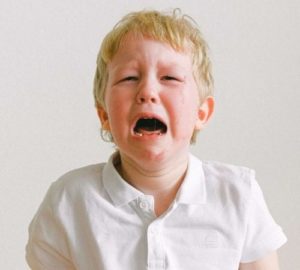What can cause a loss in bladder control for small children?
I had a few really good discussions today surrounding the struggles some parents are facing right now with their young kids. One in particular stood out to me as I feel that many of us parents are facing similar struggles these days with our young ones.
 This mom I was speaking with was extremely concerned that her 5 ½ year old was having frequent accidents at school and home — WAY more than he ever had since the very beginning of potty training. After a brief discussion it turns out that the accidents started ramping up again after the birth of his sister 10 months ago.
This mom I was speaking with was extremely concerned that her 5 ½ year old was having frequent accidents at school and home — WAY more than he ever had since the very beginning of potty training. After a brief discussion it turns out that the accidents started ramping up again after the birth of his sister 10 months ago.
Why had these accidents become so frequent?
Stressors in children
Here in the practice, we often talk with parents about the three main types of stressors that our kids (and all of us!) encounter throughout life: physical, chemical and emotional.
We are very aware of the physical stressors: kids fall on the playground and skin their knees, they fall off their bikes, they fall off the couch, etc… But we often forget that even at a very young age our kids are under a tremendous amount of emotional stress.
If stress is too overwhelming it can and does alter the trajectory of development. (Notice I said alter, not permanently change, meaning it can be altered again!)
In this 5 ½ year old’s case, the emotional stress of a new sibling was likely contributing to his inability to control his bladder.
As parents, we first need to put ourselves in the shoes of our children, even if just for a brief moment.
Imagine that you are the sole focus of your mom, dad, grandpa, grandma, adoptive parent or guardian… whoever happens to be the sole reason that you survive. You get ALL of their attention!
There are no crying babies around. You receive ALL the love.
Your toys are YOURS. There’s only one carseat in the car and it’s yours.
Mom/Dad ONLY kiss/hug you. You’ve had the same bedroom for years.
You have a set routine: Mom and Dad go to work and you go to daycare or school or maybe you stay home with one parent.
You are their EVERYTHING.
Then, suddenly, your world turns completely upside down. A little sister arrives and EVERYTHING changes. Take all the things that were just mentioned and here’s what it suddenly becomes:
You get SOME of their attention. There’s a crying baby around all day and night.
You receive a SHARE of the love.
Your toys are yours… AND hers. There are now TWO carseats in the car and she’s crying in the one next to you.
Mom/Dad still kiss/hug you, but now they kiss/hug someone else too.
You USED TO have a set routine, but now Mom and Dad are suddenly home all the time and they DON’T go to work for some reason (paternity/maternity leave).
You switch bedrooms because your new baby sister arrives and your parents need that room for her.
EVERYTHING is different and that’s confusing.
Then throw a pandemic into the equation.
COVID-19 and children’s emotional stress
We are having a hard enough time as adults adapting to the changes COVID-19 has brought upon us.
Can you comprehend it? I sure can’t. Does it stress you out? Because it stresses me out!
A child in their prime years of development surely cannot comprehend what is happening in this world.
We have to keep in mind that whatever stress and uncertainty we are feeling, it is probably even more confusing for our kids!
How stress affects brain development in children
Remember those three different stressors (physical, chemical, emotional) I mentioned earlier?
If I were to place a subjective hierarchy on the effect these stressors have on the developing brain, I would place the emotional component easily at the top.
Recent research articles¹ have shown that emotional stress has a tremendous impact on the developing brain.
As one article states, “Chaos and unevenness of emotional tone and behavior within the family impair the development of self-control and healthy emotional regulation.” Controlling one’s bladder is a component of self-control.
It goes on to say that we must “…emphasize that there is only so much that parents can do, apart from providing a consistent and supportive environment.”
That is such a KEY component when it comes to helping children adapt to another sibling OR any other emotional stressors they come across. If your child is having more accidents, keep routines as consistent as possible.
Maintaining a firm routine and a set schedule gives your kids some much-needed stability when it feels like everything else around them is changing.
That routine means things like bedtime or snack time are NOT changing.
Your kids can count on those fundamental elements of their day even if they can’t count on their favorite toy being exactly where they last left it because their baby sister has been playing with it.
And when your kiddo does have an accident, stay calm and keep your cool.
You are there to support them and guide them. Your positive support WILL allow them to develop and grow into a more mature brain.
McEwen, B. (2011, September). Effects of stress on the developing brain. Retrieved December 01, 2020, from https://www.ncbi.nlm.nih.gov/pmc/articles/PMC3574783/